
Evaluation of hazard-mitigating hybrid infrastructure under climate change scenarios
What are hybrid measures for mitigating complex natural risks? How to model their impacts and demonstrate their effectiveness?
The project will critically assess hybrid infrastructure as a promising option for adapting to climate change, serving as a more effective alternative to conventional gray and green measures. The project will focus on studying floods, soil erosion, slope movements, and other complex risks. The goal is to identify effective hybrid measures that can successfully address multiple risks. The effects of hybrid infrastructure will be evaluated through environmental modeling in various scenarios of climate change.
| Funding Agency: | GAČR Lead Agency |
| Duration: | 1/2023 – 12/2025 |
| Contact Person: | Lenka Slavíková, e-mail: slavikova@ieep.cz |
| Researchers: | Lenka Slavíková, Jiří Louda, Jan Macháč, Pavel Raška, Martin Dolejš |
| In cooperation with: | University of Ljubljana |
| Web-site: |
LAND4CLIMATE: Utilization Of Private Land For Mainstreaming Nature-Based Solution In The Systemic Transformation Towards A Climate-Resilient Europe
How to implement and validate nature-based solutions (NBS) on private land to reduce concurrent climate change risks?
LAND4CLIMATE aims to deploy and demonstrate the implementation of nature-based solutions (NBS) on private land. NBS are inspired by nature or natural processes. They promise to enhance the resilience of landscapes and urban settlements. However, the implementation of NBS is still in its infancy, especially as these measures require a fair amount of land that is often privately owned. The main objective of LAND4CLIMATE is to co- design and validate NBS on private land.
| Funding Agency: | Horizon Europe |
| Duration: | 9/2023 – 8/2027 |
| Contact person: | Lenka Slavíková, e-mail: slavikova@ieep.cz |
| Researchers: | Lenka Slavíková, Jan Macháč, Pavel Raška, Michaela Štěbetáková, Lenka Dubová |
| In cooperation with: | TU Dortmund, město Krásná Lípa, Správa národního parku České Švýcarsko and other partners. |
| Web-site: | https://land4climate.eu/ |
Municipalities talk about water: Communication of the implementation of rainwater management measures in cities
Effective communication between municipalities and public on implementing measures for better rainwater management.
The project focuses on self-government needs in relation to communicating measures related to rainwater management (RWM), such as greenery planting, permeable surfaces, eco-friendly greenery maintenance, green roofs and walls, etc.
Good communication between the municipality and the public is a basic prerequisite for effective planning, easier implementability and better understanding of the purpose of specific measures. However, there are still numerous barriers to public involvement in planning and execution of RWM measures in practice. The effects include the fact that the public is not sufficiently informed about and identified with the purpose of specific measures. At the same time, some cities lack sufficient capacities for creating intelligible content that would be interesting and instructive for the public. A frequent consequence is conservation of existing unsatisfactory ways of both communication and rainwater management itself.
Therefore, the project “Municipalities talk about water” will primarily identify needs of municipalities for better communication of RWM measures and test effectiveness of communication capacities in relation to specific measures and public target groups.
The project is based on linking researchers in various disciplines (sociology, economics, marketing, public administration, urbanism). In this project, the IEEP research team follows up on its previous research dealing with green and blue infrastructure (see Methodology for Economic Assessment of Green and Blue Infrastructure) and rainwater management (see WATER IN CITIES methodology).
.
| Funding agency: | Technology Agency of the Czech Republic (TL05000674) |
| Duration: | 05/2021 – 12/2023 |
| Contact person: | Jan Macháč, e-mail: machac@ieep.cz |
| Researchers: | Lucie Povolná, Jan Macháč, Marek Hekrle |
| In cooperation with: | UJEP FSE (lead partner) and ČVUT UCEEP (project partner) |
| Project outcomes: | The main project outcome will be rules and procedures for communication of selected RWM measures between local self-governments and the public. |
Rainwater management in households: economic incentives, barriers and motivations
Why Czech households do (not) use rainwater? What are the effective positive and negative incentives for more intensive rainwater management?
Changes in hydrological regime and their impacts, such as droughts and flashfloods, require changes in rainwater management. Households are important parts of the story. Retained rainwater can be replace part of the drinking water uses, such as garden irrigation, flushing toilets, etc. The project aims at capturing household preferences towards rainwater management – this is done through repeated representative surveys, so we can compare differences in preferences in time. Also, impacts of economic instruments of the public policy are evaluated in this area.
We cooperate with STEM and Faculty of Civil Engineering of the Czech Technical University Prague.
| Funding Agency: | TAČR, SMART-ITI |
| Duration: | 2017 – 2023 |
| Contact Person: | Lenka Slavíková, e-mail: slavikova@ieep.cz, lenka.slavikova@ujep.cz |
| Researchers: | Lenka Slavíková, Jan Macháč |
LAND4FLOOD: Natural Flood Retention on Private Land
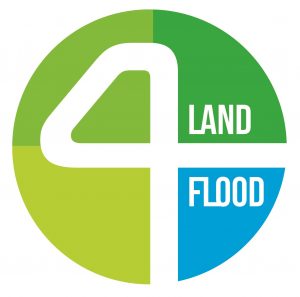 |
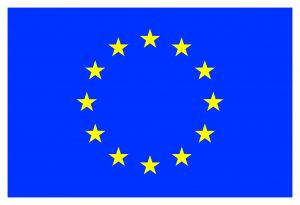 |
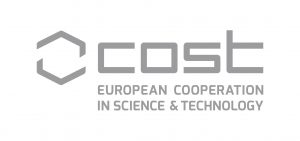 |
How to encourage land owners to realize or cooperate in realization of natural water retention measures for the flood damage reduction?
Climate change increases the frequency and intensity of future flood events, leading to higher costs of flood damages and increasing the public demand for protective measures. Traditional flood protection measures, mainly based on grey infrastructure (i.e. dikes, dams, etc), are not sufficient to cope with dynamic flood risk alone. Nature-based solutions such as Natural Water Retention Measures (NWRM) are promising options to mitigate flood risks as a complement to grey infrastructure. However, a common characteristic of green infrastructure measures is that they often claim more land than traditional methods.
The challenge is to consider multifunctional land uses, which enable temporary flood retention and flood storage on private land without restricting the provision of other ecosystem services. The reconciliation of flood risk management and land management is needed. Since all NWRM primarily need to be implemented on private land the consideration of multiple aspects includes: economic issues (e.g. how to compensate for or incentivize flood retention services); property rights issues (e.g. how to allow temporary flood storage on private land); issues of public participation (e.g. how to ensure the involvement of private landowners) as well as issues of public subsidies (e.g. how to integrate/mainstream flood retention in agricultural subsidies). LAND4FLOOD cost action aims to address these different aspects and to establish a common knowledge base and channels of communication among scientists, regulators, land owners and other stakeholders in field.
Project outputs are developed in cooperation with the Department of Geography of the Faculty of Science UJEP.
| Funding Agency: | COST European Cooperation in Science and Technology |
| Duration: | 11/2017 – 9/2021 |
| Contact Person: | Lenka Slavíková, e-mail: slavikova@ieep.cz, lenka.slavikova@ujep.cz |
| Researchers: | Lenka Slavíková, Jiřina Jílková, Jan Macháč, Pavel Raška |
| Web-site: | land4flood.eu |
| Outputs: | Video about LAND4FLOOD
Book Nature-based Flood Risk Management on Private Land Book Spatial Flood Risk Management Many other papers, policy briefs and other outputs: HERE |
STRIMAII: Saxon-Czech Flood Risk Management II
 |
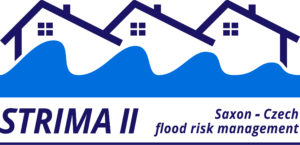 |
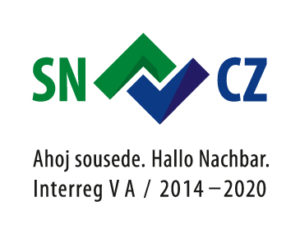 |
Analysis of tools and measures for the flood damage mitigation on buildings, infrastructure and in the countryside.
Cross-border cooperation in flood risk management is important not only because the emergency information sharing is needed to improve preparedness. Other reasons are the need for the flood management experience exchange and the coordination of damage mitigation strategies. Crucial actors in this process are Mayors of (potentially) affected villages, citizens and entrepreneurs influencing run-off conditions in the river basin scale. The project builds on the first steps undertaken within STRIMA and aims to further deepen the cross-border flood risk management, including the prevention of damages on buildings and infrastructure. It also supports the continuity of cross-border flood risk management forums. Important part of the project is the economic and institutional analysis of natural flood retention measures.
| Funding agency: | Cooperation Programme Free State of Saxony – Czech Republic 2014-2020 |
| Duration: | 7/2017 – 12/2020 |
| Contact person: | Jan Macháč, e-mail: machac@ieep.cz |
| Researchers: | Jan Macháč, Lenka Slavíková, Monika Krpešová (Stehlíková), Pavel Raška, Marek Hekrle, Alena Vacková |
| In cooperation with: | Sächsisches Landesamt für Umwelt, Landwirtschaft und Geologie (LfULG), Leibniz-Institut für ökologische Raumentwicklung (IOER), ČVUT v Praze, Agentura regionálního rozvoje v Liberci |
| Project web pages: | https://www.strima.sachsen.de/ |
DeMaRisk: Individual and Organizational Decision-making in Environmental Risk Reduction: Determinants, Motivations and Efficiency
What factors influence the preparedness of individuals and organizations to effectively cope with natural disasters?
The environmental hazards have struck societies with considerable intensity and recurrence and their impacts are relative to the resilience of the society concerned. The effective ways to reduce environmental risk are related to social action and learning at different institutional levels and efficient risk reduction must be based on balance between individual and institutional approaches through participation and governance. Nevertheless, current writing frequently reduces the two-way nature of the participation process and it only partly analyses individual action as a formative component of institutional frameworks, which is even more distinct in Central-Eastern European context. In this project, we use the multilevel approach to analyse the determinants and mechanisms of how do individuals and institutions learn to reduce risks. We particularly address questions: What are the factors that determine the individual and organizational decision-making in risk reduction? How does the individual learning co-form the institutional frameworks of risk reduction? How are these mechanisms influenced by political-societal context of Central-Eastern Europe?
| Funding Agency: | Czech Grant Agency (project is coordinated by the Faculty of Science of Jan Evangelista Purkyně University) |
| Duration: | 1/2016–12/2018 |
| Contact Person: | Lenka Slavíková, e-mail: slavikova@ieep.cz, lenka.slavikova@ujep.cz |
| Researchers: | Pavel Raška, Lenka Slavíková, Jan D. Bláha |
| In Cooperation with: | Charles University Prague, University of Ostrava |
| Downloads: | Slavikova, L., Raska, P., & Kopacek, M. (2019). Mayors and “their” land: Revealing approaches to flood risk management in small municipalities. JOURNAL OF FLOOD RISK MANAGEMENT, 12(3), e12474. https://doi.org/10.1111/jfr3.12474
Slavikova, L. (2018). Effects of government flood expenditures: the problem of crowding-out. Journal of Flood Risk Management, 11(1), 95–104. https://doi.org/https://onlinelibrary.wiley.com/journal/1753318x |
Evaluation of the Cost Proportionality of Reaching the Good Water Status
The proposal of the process of the justification of the cost disproportionality exemption for the purpose of Water Framework Directive goals fulfillment.
The implementation of the Water Framework Directive (No. 2000/60/EC) brought the commitment to reach “good status” of all water bodies until 2027. In reality, this means the adoption of numerous investment measures in order to decrease the pollution inflow and to improve the morphology of water bodies. However, achieving “good status” is associated with large investments, often beyond the capabilities of polluters. In justified cases, member states may request an extension of the deadline based on disproportionality of the costs of meeting the WFD requirements (Article 4). The Directive doesn’t provide a clear explanation how the cost proportionality should be assessed. Within the project, the Czech methodology certified by the Czech Ministry of Agriculture was developed. Our approach is grounded in cost-benefit analysis and compared with alternative approaches, such as “new Leipzig approach” (see the enclosed case study).
| Funding Agency: | Technology Agency of the Czech Republic |
| Duration: | 1/2014–12/2015 |
| Contact Person: | Lenka Slavíková, e-mail: slavikova@ieep.cz, lenka.slavikova@ujep.cz |
| Funding Agency: | Jan Macháč, Lenka Slavíková, Ondřej Vojáček, Jan Brabec |
| In Cooperation with: | Water Research Institute of T. M. Masaryk |
| Outputs: | Macháč J., Brabec J., Slavíková L. (2016): Pilot study of cost proportionality analysis according to the “new Leipzig approach” in the Czech Republic. Ústí nad Labem: IEEP, Institut pro ekonomickou a ekologickou politiku, Univerzita J. E. Purkyně (v anglickém jazyce). |
| Downloads: | Pilot study of cost proportionality analysis according to the new Leipzig approach in the Czech Republic (pdf) |
| Use of Results: | The methodology certified by the Czech Ministry of Agriculture |
Economic Analysis of the Euthrophication Problem at Orlik Reservoir
Evaluation of the cost-effectiveness combination of measures in the river basin scale for the euthrophication reduction in the large dam Orlik.
Within large European project REFRESH, the IEEP and IREAS, Institute for Structural Policy teams were responsible for the economic analysis of the euthrophication problem at Orlik water reservoir situated at Southern Bohemia. The analysis contains the cost-effectiveness evaluation of proposed measures for the phosphorus inflow reduction. Further, benefits derived from the water improvement were assessed based on the benefit transfer method. Proposed measures and results of the evaluation were consulted with key local stakeholders and distributional impacts on different economic sectors (main cost bearers and benefit receivers) were described as well.
| Funding Agency: | Biology Centre of the Czech Academy of Science |
| Duration: | 10/2012–12/2013 |
| Contact Person: | Lenka Slavíková, e-mail: slavikova@ieep.cz, lenka.slavikova@ujep.cz |
| Researchers: | Lenka Slavíková, Ondřej Vojáček, Jan Macháč, Tomáš Smejlal, Josef Hejzar, Eva Cudlínová |
| Outputs: | VOJÁČEK, Ondřej; HEJZLAR, Josef; SLAVÍKOVÁ, Lenka; MACHÁČ, Jan; SMEJKAL, Tomáš; CUDLÍNOVÁ, Eva. Cost-effectiveness analysis report for the Vltava catchment, Czech Republic, including analysis of disproportionality. |
| Downloads: | Cost-effectiveness analysis report for the Vltava catchment, Czech Republic, including analysis of disproportionality (pdf) |
SE CLIMATE: A Socio-economic Analysis of ClimateChange Impact within the Context of Water Management in the Czech Republic
Design and evaluation of the economic instruments for the effective water allocation in the Czech Republic (under the condition of inreasing scarcity of water)
“Hydrological research (monitoring water quality and quantity, extreme phenomena – floods and drought) constitutes the basis for climate change impact research. However, it is not able to provide specific answers regarding future water scarcity. The existing water management needs to reflect this uncertainty and adjust administrative and market-based instruments in order to better address actual water scarcity. Therefore, the project aims at:
1. Evaluating the available information resources on links between climate change and water in a European (Czech) context and methods of processing them.
2. An analysis of water resources accessibility and its impact on market segments, a model of climate change influence on the effectiveness of direct and indirect instruments in water management.
| Funding Agency: | Czech Ministry of Agriculture |
| Duration: | 1/2009 – 12/2011 |
| Contact Person: | Lenka Slavíková, e-mail: slavikova@ieep.cz, lenka.slavikova@ujep.cz |
| Researchers: | Jiřina Jílková, Lenka Slavíková, Adéla Romášková, Vítězslav Malý, Ondřej Vojáček, Jan Kavan |
| In Cooperation with: | Water Research Institute of T. M. Masaryk |

